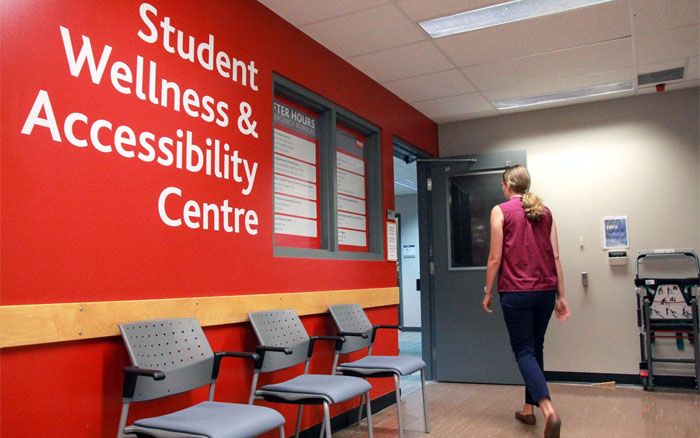From Data to Action: Improving Your Campus Through Reporting

In a society that values health and well-being more than ever, colleges and universities bear a significant responsibility to ensure the wellness of their students. One crucial component of this endeavor is the monitoring and reporting of services provided by these institutions. In this article, we delve deep into how to report on wellness services utilization.
Specifically, we will be discussing the impacts reporting can have on:
- Student health clinics
- Counseling centers
- Immunization compliance management
The crux of any meaningful report is objective and accurate data. The utility of data in reporting cannot be overstated, as it forms the basis of the most insightful analyses and strategic decisions. The data sets visualized through reporting can offer holistic insights into health and counseling utilization patterns among students and can highlight specific groups of students, programs, or clinics that may need extra attention.
An effective EHR can interpret these data sets and unmask correlations and trends that might not be clear at first glance, thereby enabling colleges to make data-driven decisions to improve overall wellness strategy and the student experience.
Identifying Trends to Address Evolving Counseling Needs
Challenges such as academic stress, social anxiety, and depression call for effective counseling centers on campuses. Reporting on wellness service utilization can significantly improve the impact of counseling centers.
In addition to health screenings, counseling services data can provide valuable information on the mental health needs of students. By analyzing the number of counseling sessions conducted, the reasons for seeking counseling, and the outcomes of these sessions, colleges can better understand the mental health challenges faced by their students.
Reports can also highlight appointment wait times and session lengths. This data can then be used to allocate resources effectively, such as hiring more counselors or implementing outreach events. Lastly, real-time reports can flag any sudden increases in counseling needs, enabling swift institutional responses to pressing student needs.
With the increasing prevalence of mental health issues among students, it’s crucial for colleges and universities to closely monitor the demand for and usage of these services. By examining the trends in mental health service utilization, institutions can decide if their current resources are sufficient to meet the growing needs of their students. It’s imperative that colleges use reporting to address these critical issues.
The Transformative Role of Reporting in College Health Centers
College health centers are the first line of defense when it comes to student health issues. Therefore, making the health center as effective as possible should top the priority list of college leaders.
Detailed reports can reveal the number of students seeking medical care, the types of health concerns addressed, and the outcomes of these consultations, providing valuable insights.
Reports can also help figure out if there are any potential outbreak scenarios occurring on campus. By analyzing this data, colleges can track common health issues among students, such as respiratory infections or stress-related conditions, and develop proactive strategies to promote health and wellbeing. This can include initiatives like educational workshops, campus-wide health campaigns, or specialized clinics to address growing student health needs.
Moreover, the analysis of trends in wellness services utilization should not be limited to the student population alone. It is equally important to examine the utilization patterns among faculty and staff members if they have access to health services on your campus. By understanding the needs of the entire campus community, schools can tailor their services to meet these diverse needs.
In addition, it’s important to analyze utilization trends related to preventative health services. By examining trends in preventive healthcare, institutions can determine if their efforts to promote and provide a preventive approach to care are effective.
How Reports Help Paint a Picture of Immunization Compliance
Vaccination is a potent weapon in a college’s healthcare arsenal. Ensuring immunization compliance among students is necessary not just for individual health, but for community wellbeing. Advanced immunization reports can track vaccination rates and reveal trends in immunization compliance.
Moreover, immunization data is vital for preventing outbreaks of vaccine-preventable diseases and ensuring the health and safety of students, staff, and faculty. By identifying any gaps in immunization coverage, colleges can implement targeted vaccination campaigns to increase compliance and protect against potential health risks. Therefore, through effective reporting and analysis, colleges can aspire to achieve better immunization compliance and foster a healthier campus community.
Identifying Opportunities for Improvement in Wellness Services Utilization
Reports do more than just highlight the utilization of your wellness offerings; they also pave the way for necessary improvements. By identifying underutilized resources or services that fail to meet students’ needs, institutions can take proactive steps to improve campus-wide wellness.
These changes can involve better allocation of resources, increased awareness campaigns for lesser-used services, or a complete overhaul of certain wellness programs. Also, student feedback can be an incredible tool for helping campus leaders understand why certain services aren’t being used.
Key Takeaways
By leveraging this rich data and effectively visualizing and interpreting it, colleges can gain a comprehensive understanding of the impacts (and/or shortcomings) of their wellness offerings. This information empowers colleges, including clinic leaders, to make data-driven decisions that are tailored to the unique needs of their student population.
By addressing underutilized or ineffective wellness initiatives, colleges can optimize the allocation of resources and improve the overall quality of care and student experience. Ultimately, advanced reporting on the utilization of wellness services is a powerful tool that enables colleges to create healthier and more supportive environments for their students.












